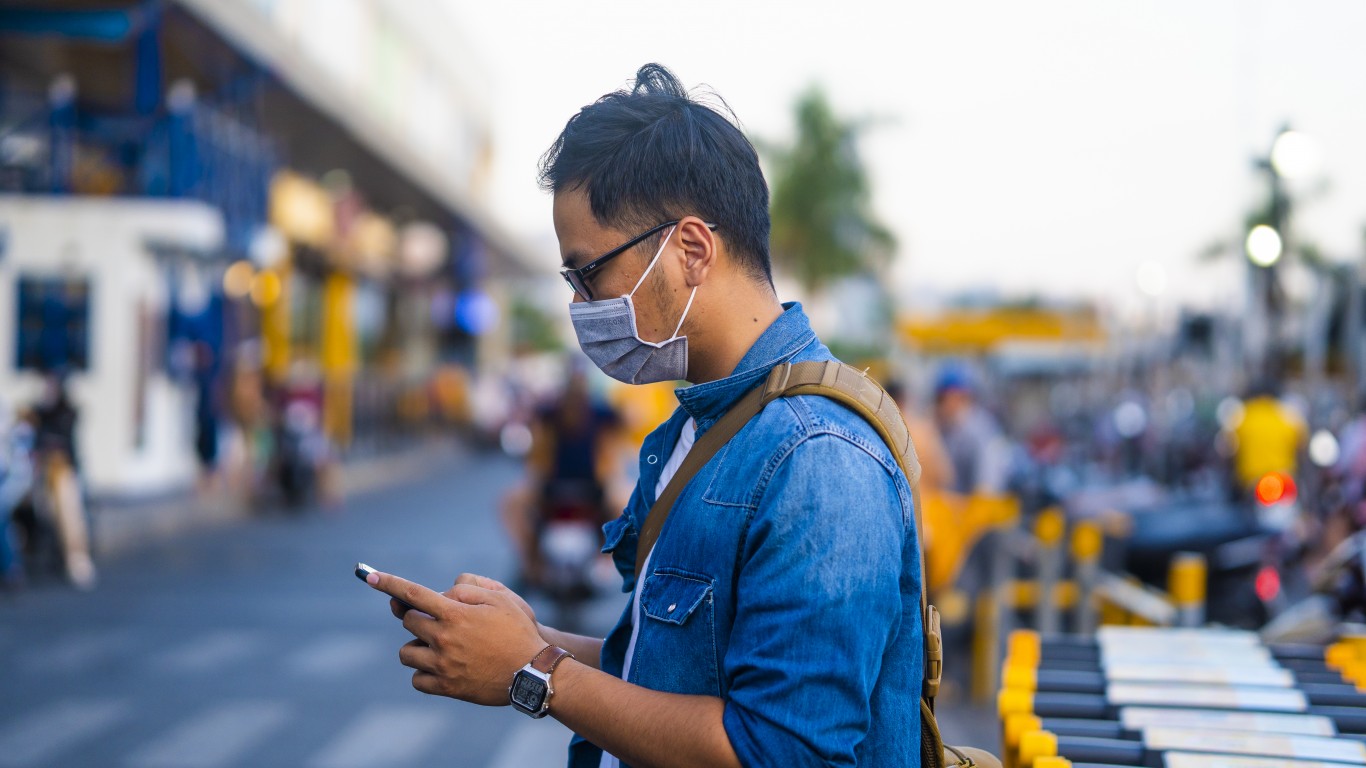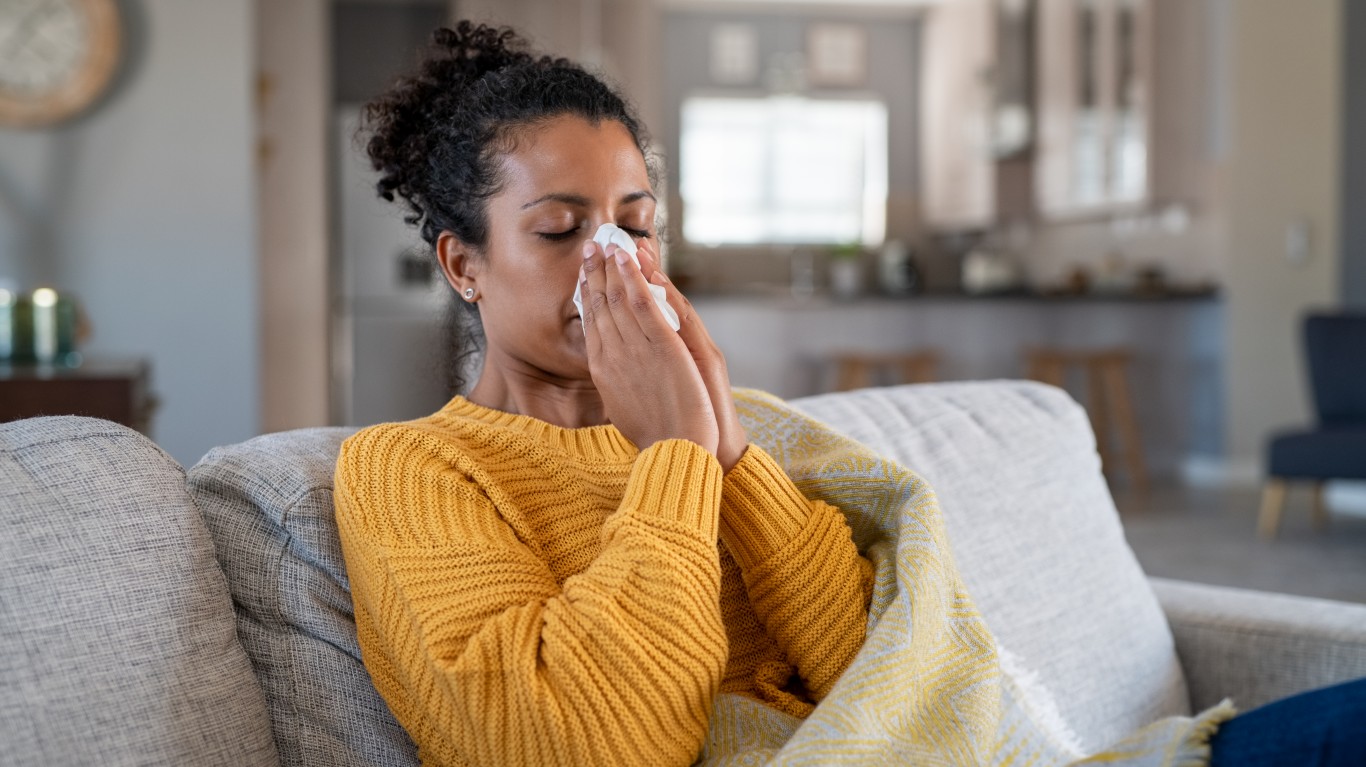
The United States is entering what may be its worst flu season in over a decade. According to weekly data published by the Centers for Disease and Control and Prevention, respiratory symptoms including fever, cough, and sore throat were reported in 6.9% of all visits to health care providers during the week ending Dec. 10, 2022.
The percentage, used by the CDC to measure flu-, or influenza-like illnesses (ILI), is well above the national baseline of 2.5%, but down slightly from the previous two weeks when the measure surpassed peak levels of past flu seasons in the U.S. The incidence of respiratory illness remains relatively higher than the rate observed in week 49 during most previous seasons since 2010-2011.
Multiple respiratory viruses, including influenza, but also SARS-CoV-2 (the virus that causes COVID-19), and respiratory syncytial virus (RSV), are co-circulating. (See how COVID fatality rates compare with other diseases.)
According to estimates from the CDC, there have been as many as 33 million illnesses, 330,000 hospitalizations, and 28,000 deaths from flu so far this season. (These are the worst epidemics and pandemics in history.)
The four states with the highest incidence of flu-like illness last week all reported rates of 10% or greater: New Mexico (17%), North Dakota (13%), Nebraska (12%), and Washington (11%). One other jurisdiction, Puerto Rico, had an incidence of flu-like illness of 11%.
Click here to see how bad the flu season is in every state
Click here to read our detailed methodology
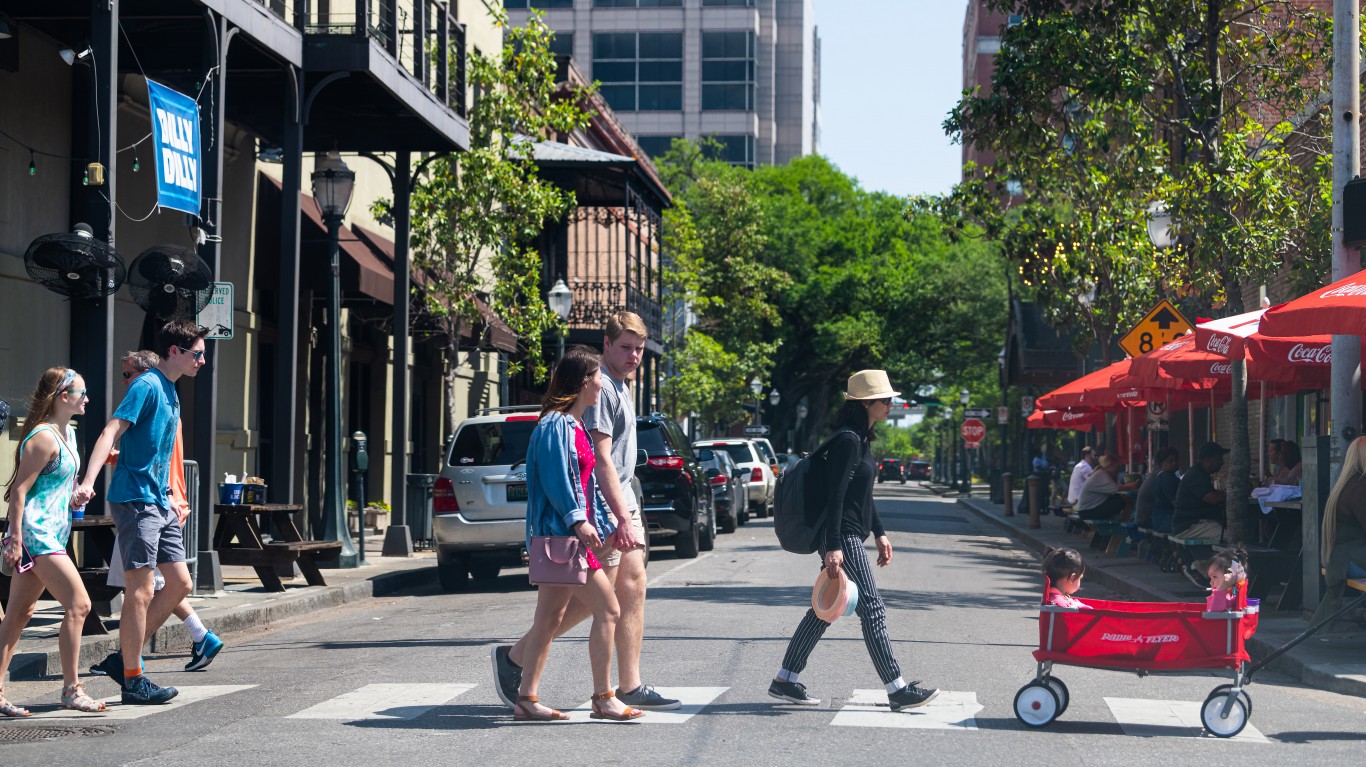
Alabama
> Flu-like illness activity level: High
> Flu-like symptoms in week ending Dec 10: 4.6% of 49,879 patients
> Flu activity baseline during offseason for Region 4: 3.1% of patients
> 65 and over population: 17.6% (23rd highest)
> 5 and under population: 5.8% (18th highest)
[in-text-ad]
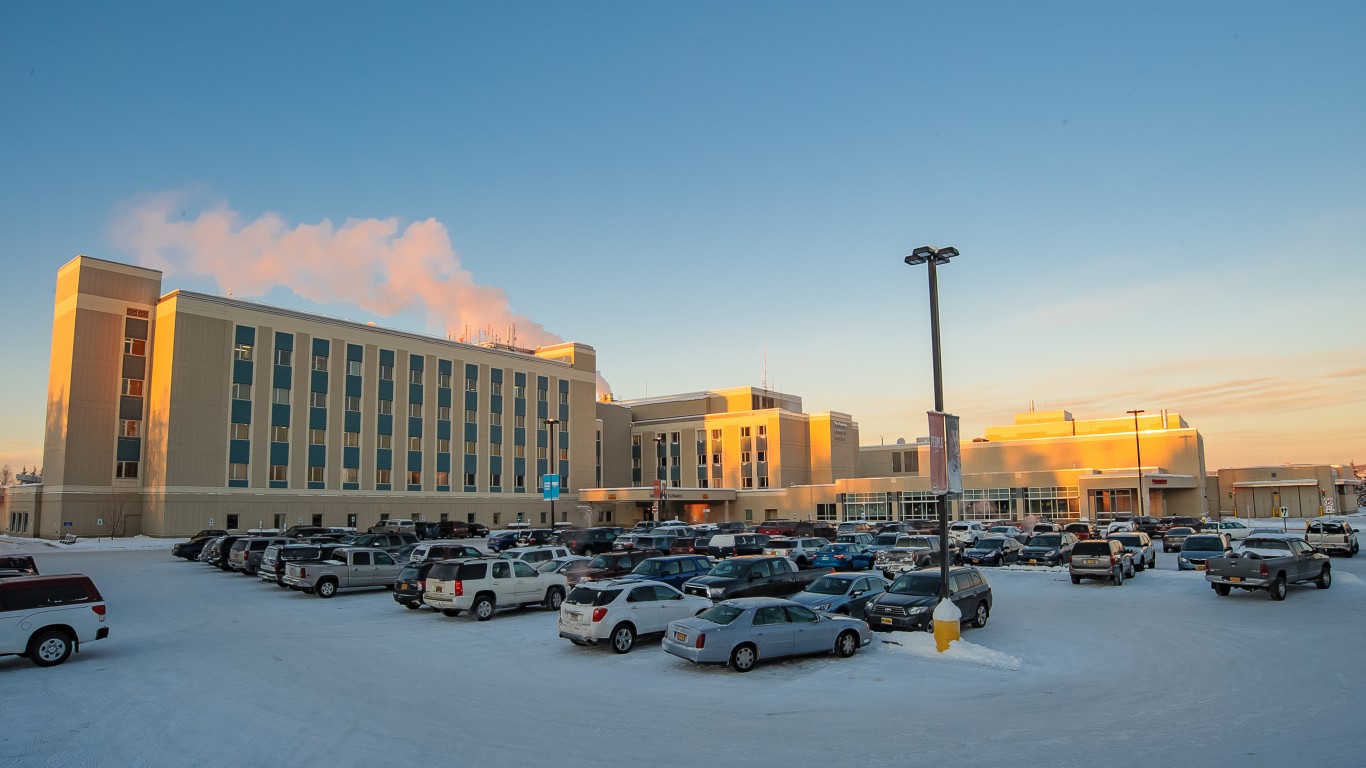
Alaska
> Flu-like illness activity level: Low
> Flu-like symptoms in week ending Dec 10: 3.8% of 4,155 patients
> Flu activity baseline during offseason for Region 10: 1.8% of patients
> 65 and over population: 13.4% (4th lowest)
> 5 and under population: 6.3% (6th highest)
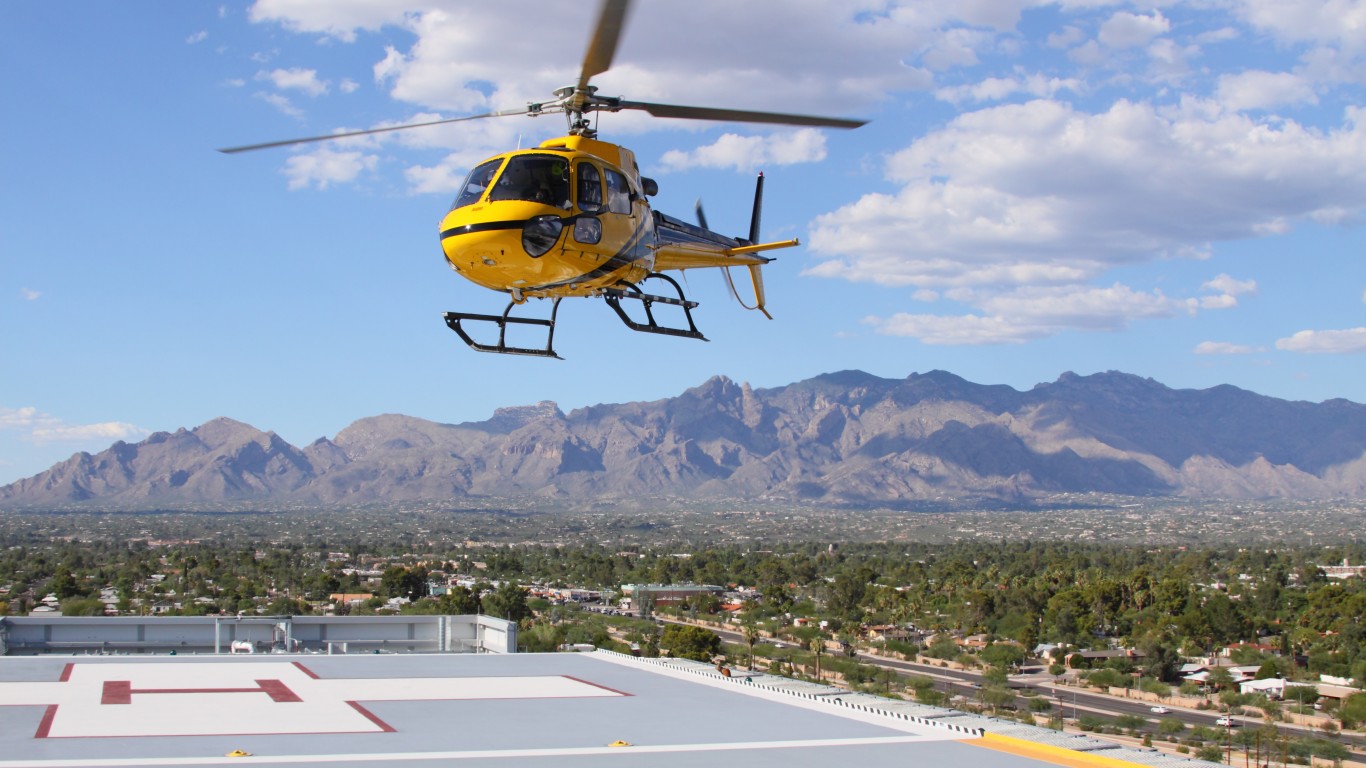
Arizona
> Flu-like illness activity level: High
> Flu-like symptoms in week ending Dec 10: 5.3% of 19,736 patients
> Flu activity baseline during offseason for Region 9: 2.4% of patients
> 65 and over population: 18.3% (13th highest)
> 5 and under population: 5.5% (21st lowest)

Arkansas
> Flu-like illness activity level: Very High
> Flu-like symptoms in week ending Dec 10: 6.1% of 17,011 patients
> Flu activity baseline during offseason for Region 6: 3.9% of patients
> 65 and over population: 17.4% (26th highest)
> 5 and under population: 5.9% (13th highest)
[in-text-ad-2]

California
> Flu-like illness activity level: Very High
> Flu-like symptoms in week ending Dec 10: 7.1% of 289,975 patients
> Flu activity baseline during offseason for Region 9: 2.4% of patients
> 65 and over population: 15.2% (7th lowest)
> 5 and under population: 5.6% (25th highest)

Colorado
> Flu-like illness activity level: Very High
> Flu-like symptoms in week ending Dec 10: 9.0% of 53,552 patients
> Flu activity baseline during offseason for Region 8: 2.8% of patients
> 65 and over population: 15.1% (6th lowest)
> 5 and under population: 5.3% (14th lowest)
[in-text-ad]

Connecticut
> Flu-like illness activity level: Very High
> Flu-like symptoms in week ending Dec 10: 7.5% of 49,191 patients
> Flu activity baseline during offseason for Region 1: 2.0% of patients
> 65 and over population: 18.0% (16th highest)
> 5 and under population: 4.9% (5th lowest)

Delaware
> Flu-like illness activity level: Moderate
> Flu-like symptoms in week ending Dec 10: 3.1% of 15,200 patients
> Flu activity baseline during offseason for Region 3: 2.1% of patients
> 65 and over population: 20.1% (5th highest)
> 5 and under population: 5.3% (13th lowest)
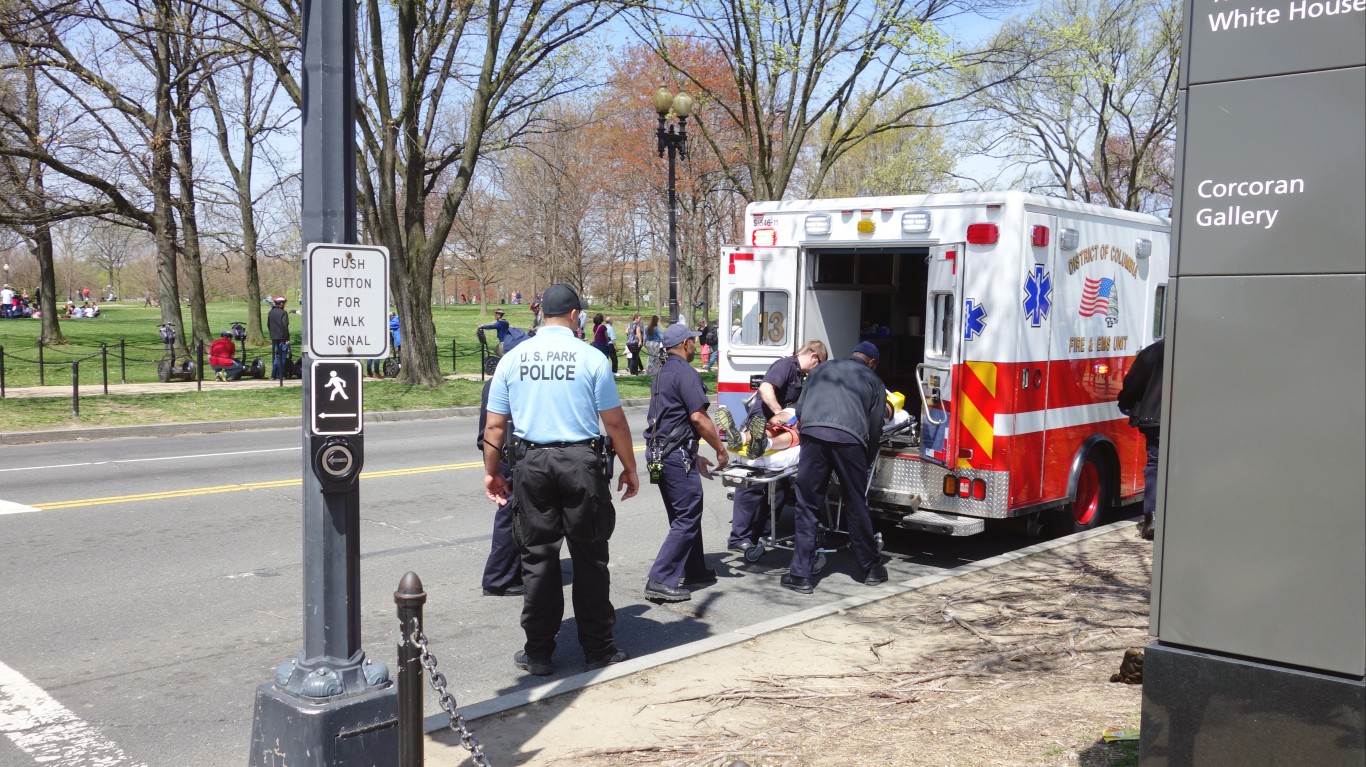
District of Columbia
> Flu-like illness activity level: Very High
> Flu-like symptoms in week ending Dec 10: 8.8% of 6,567 patients
> Flu activity baseline during offseason for Region 3: 2.1% of patients
> 65 and over population: 12.8% (2nd lowest)
> 5 and under population: 6.1% (8th highest)
[in-text-ad-2]

Florida
> Flu-like illness activity level: High
> Flu-like symptoms in week ending Dec 10: 5.7% of 267,263 patients
> Flu activity baseline during offseason for Region 4: 3.1% of patients
> 65 and over population: 21.1% (2nd highest)
> 5 and under population: 5.0% (9th lowest)

Georgia
> Flu-like illness activity level: High
> Flu-like symptoms in week ending Dec 10: 5.3% of 76,859 patients
> Flu activity baseline during offseason for Region 4: 3.1% of patients
> 65 and over population: 14.7% (5th lowest)
> 5 and under population: 5.8% (16th highest)
[in-text-ad]

Hawaii
> Flu-like illness activity level: Moderate
> Flu-like symptoms in week ending Dec 10: 3.8% of 33,383 patients
> Flu activity baseline during offseason for Region 9: 2.4% of patients
> 65 and over population: 19.6% (7th highest)
> 5 and under population: 5.6% (24th highest)

Idaho
> Flu-like illness activity level: Very High
> Flu-like symptoms in week ending Dec 10: 9.5% of 8,935 patients
> Flu activity baseline during offseason for Region 10: 1.8% of patients
> 65 and over population: 16.5% (15th lowest)
> 5 and under population: 5.9% (12th highest)

Illinois
> Flu-like illness activity level: Very High
> Flu-like symptoms in week ending Dec 10: 5.9% of 82,645 patients
> Flu activity baseline during offseason for Region 5: 2.5% of patients
> 65 and over population: 16.6% (18th lowest)
> 5 and under population: 5.6% (22nd lowest)
[in-text-ad-2]
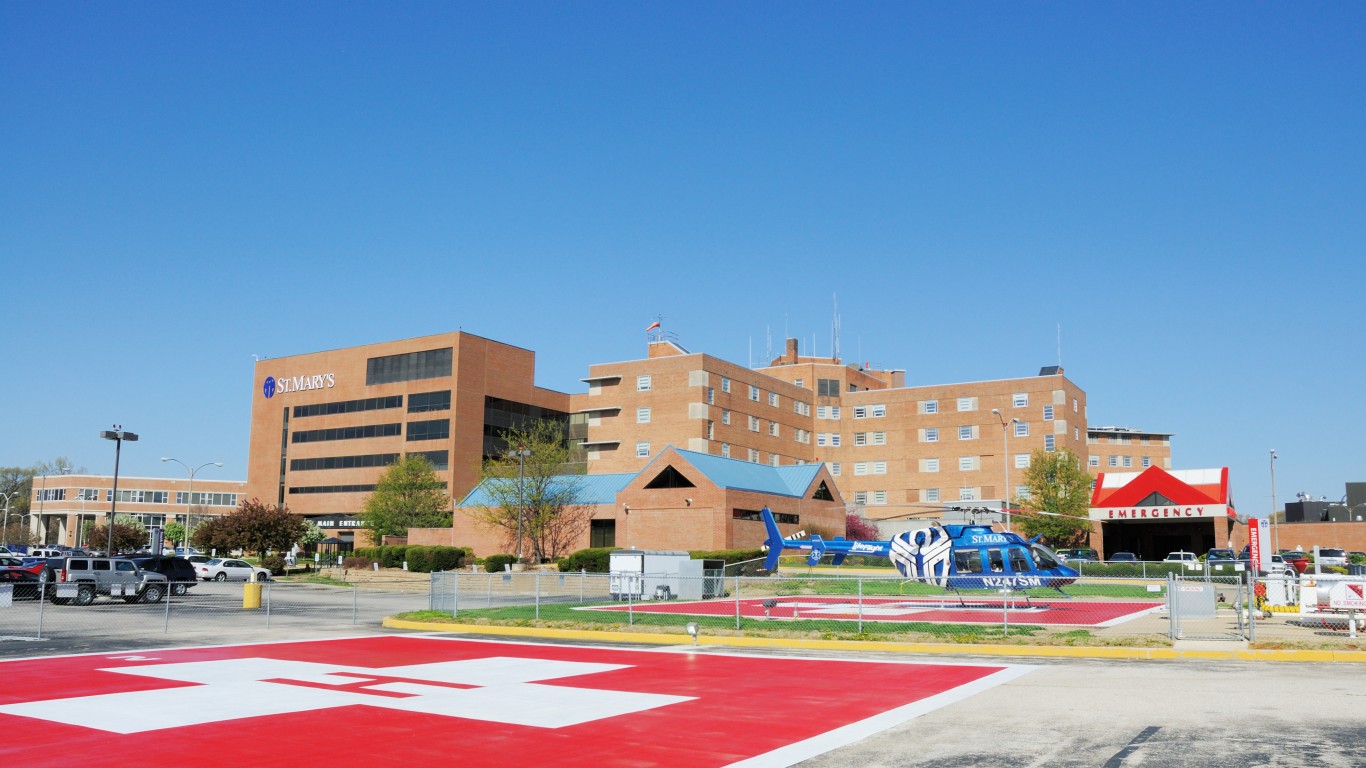
Indiana
> Flu-like illness activity level: Very High
> Flu-like symptoms in week ending Dec 10: 7.3% of 63,821 patients
> Flu activity baseline during offseason for Region 5: 2.5% of patients
> 65 and over population: 16.4% (13th lowest)
> 5 and under population: 6.0% (11th highest)
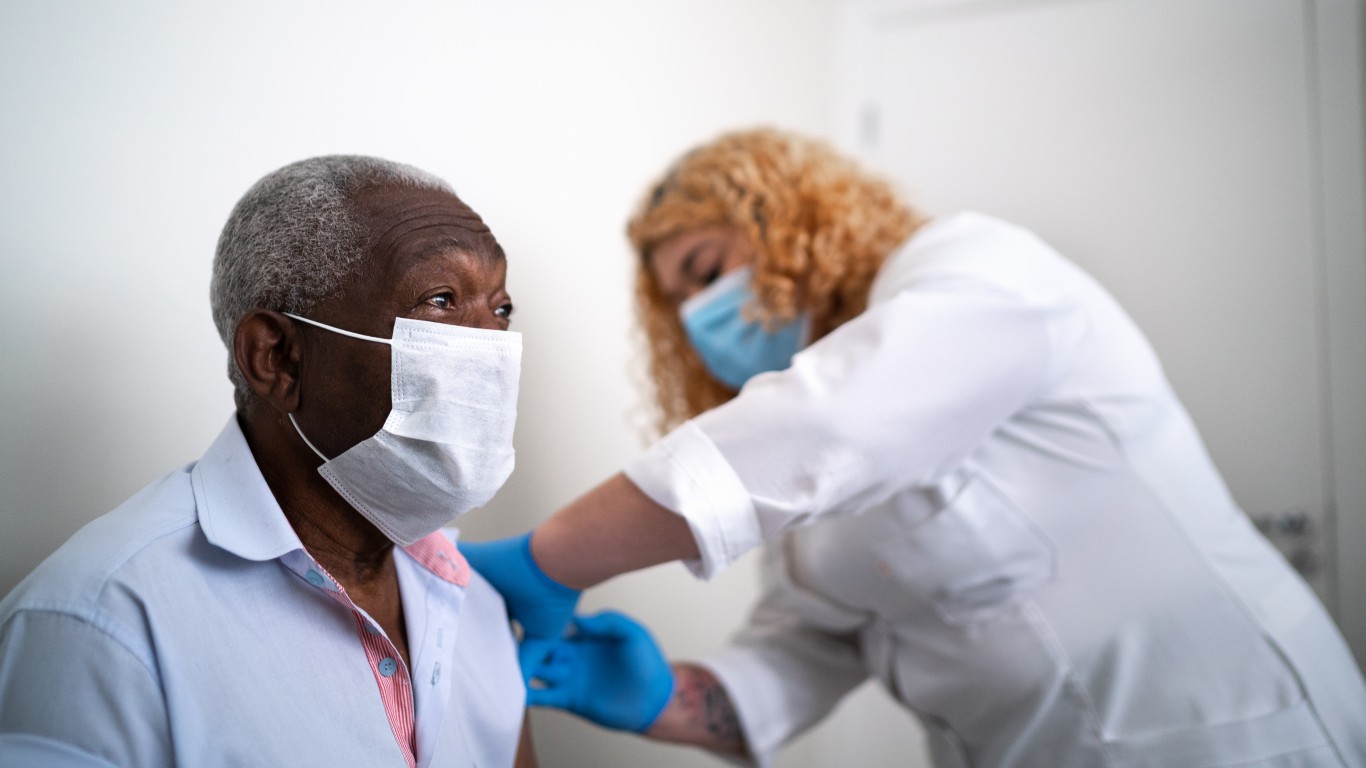
Iowa
> Flu-like illness activity level: High
> Flu-like symptoms in week ending Dec 10: 4.6% of 5,246 patients
> Flu activity baseline during offseason for Region 7: 1.8% of patients
> 65 and over population: 17.8% (20th highest)
> 5 and under population: 5.9% (15th highest)
[in-text-ad]
Kansas
> Flu-like illness activity level: Very High
> Flu-like symptoms in week ending Dec 10: 7.1% of 20,305 patients
> Flu activity baseline during offseason for Region 7: 1.8% of patients
> 65 and over population: 16.7% (19th lowest)
> 5 and under population: 6.1% (10th highest)

Kentucky
> Flu-like illness activity level: Very High
> Flu-like symptoms in week ending Dec 10: 8.0% of 35,952 patients
> Flu activity baseline during offseason for Region 4: 3.1% of patients
> 65 and over population: 17.0% (25th lowest)
> 5 and under population: 5.7% (19th highest)
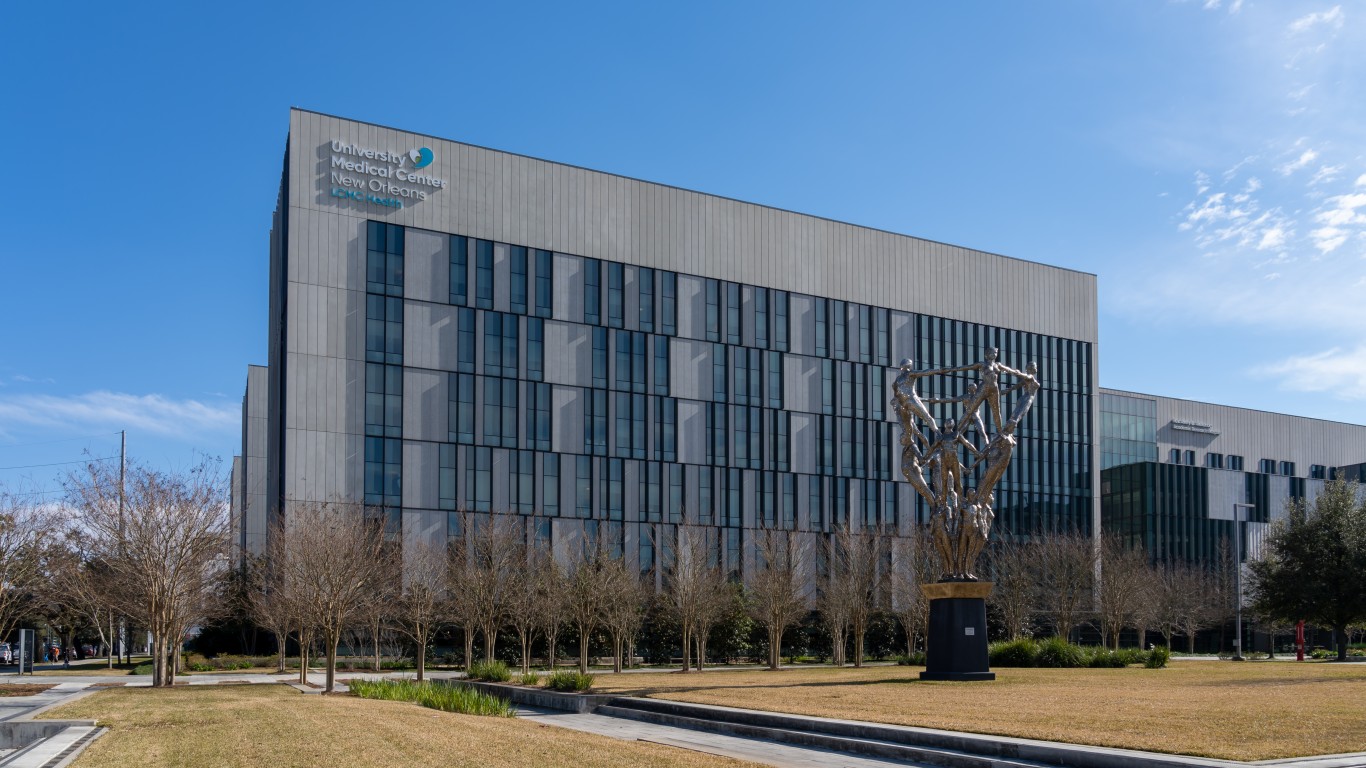
Louisiana
> Flu-like illness activity level: High
> Flu-like symptoms in week ending Dec 10: 4.0% of 46,322 patients
> Flu activity baseline during offseason for Region 6: 3.9% of patients
> 65 and over population: 16.6% (17th lowest)
> 5 and under population: 6.1% (7th highest)
[in-text-ad-2]

Maine
> Flu-like illness activity level: Very High
> Flu-like symptoms in week ending Dec 10: 8.0% of 15,527 patients
> Flu activity baseline during offseason for Region 1: 2.0% of patients
> 65 and over population: 21.7% (the highest)
> 5 and under population: 4.4% (2nd lowest)

Maryland
> Flu-like illness activity level: High
> Flu-like symptoms in week ending Dec 10: 5.3% of 45,019 patients
> Flu activity baseline during offseason for Region 3: 2.1% of patients
> 65 and over population: 16.3% (12th lowest)
> 5 and under population: 5.7% (22nd highest)
[in-text-ad]
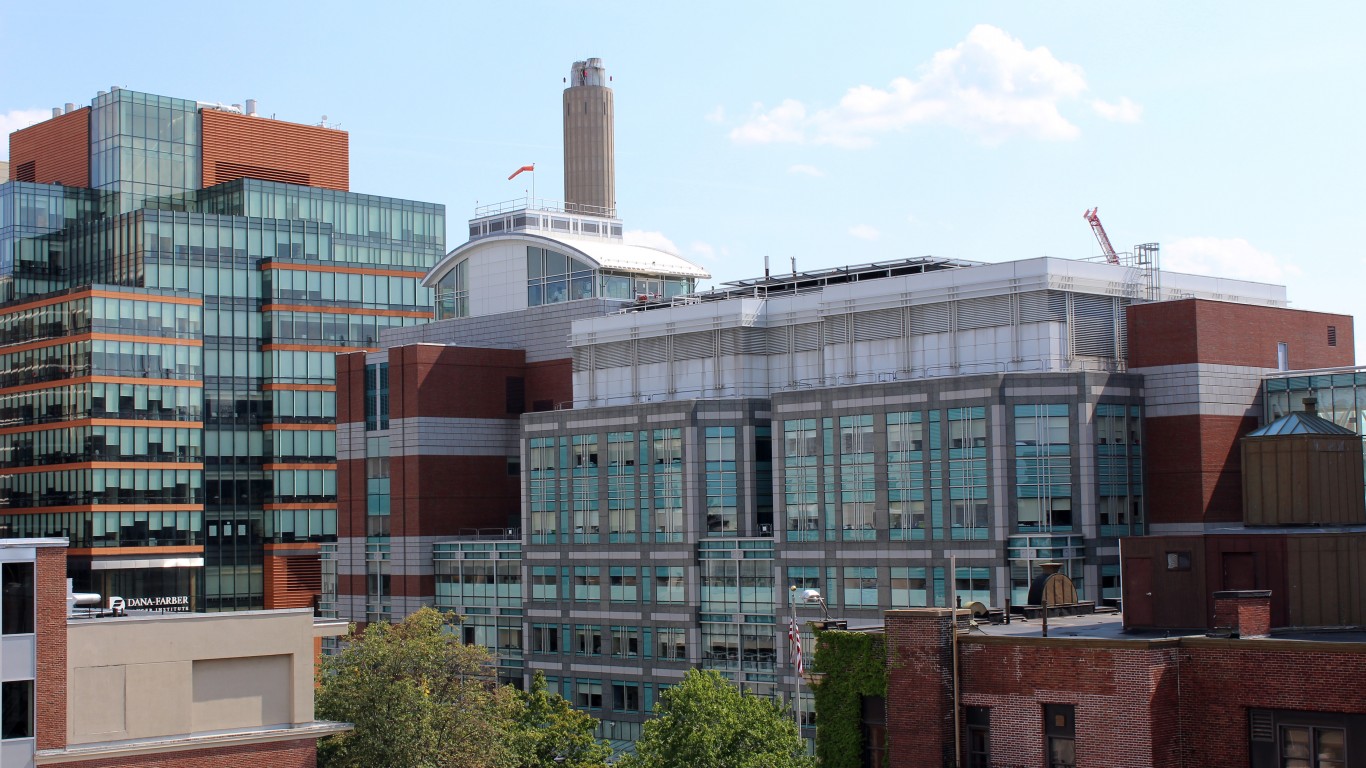
Massachusetts
> Flu-like illness activity level: Very High
> Flu-like symptoms in week ending Dec 10: 7.0% of 82,499 patients
> Flu activity baseline during offseason for Region 1: 2.0% of patients
> 65 and over population: 17.4% (25th highest)
> 5 and under population: 5.0% (7th lowest)
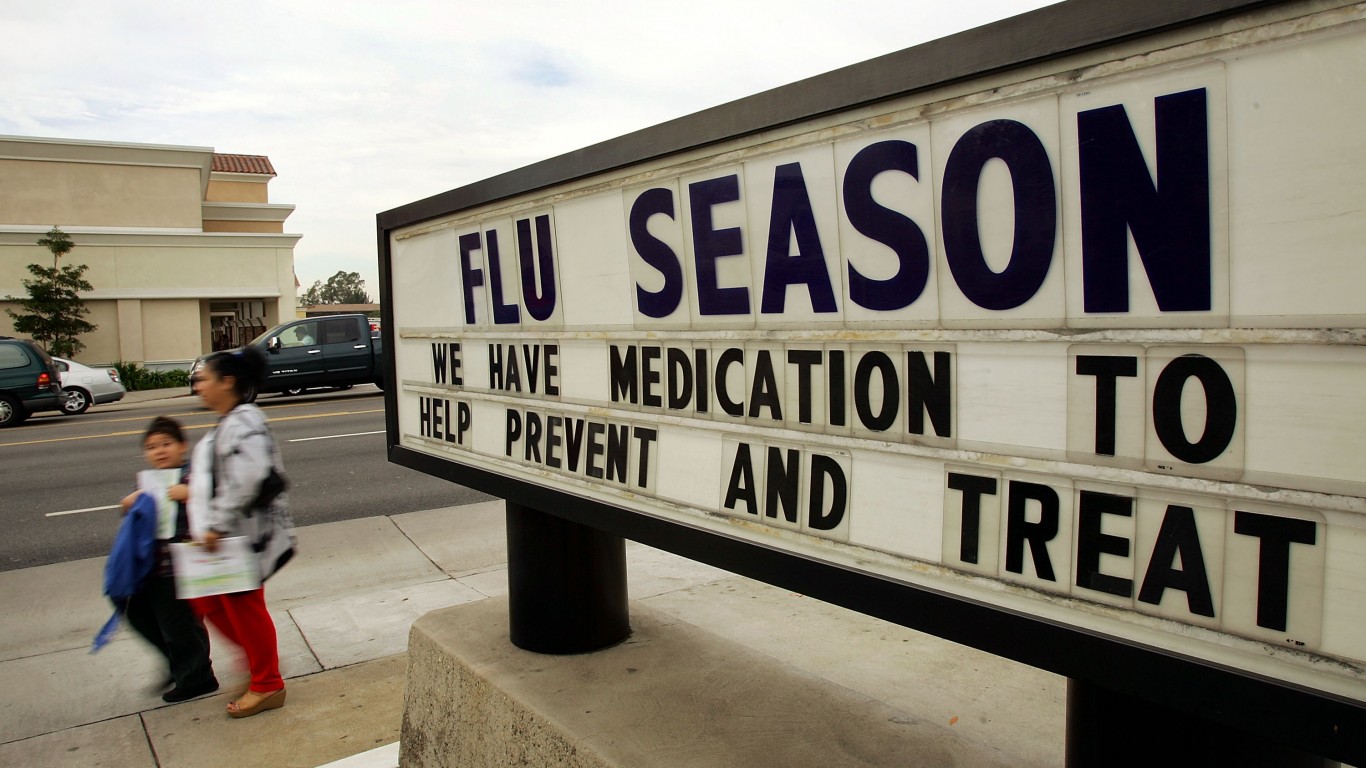
Michigan
> Flu-like illness activity level: Moderate
> Flu-like symptoms in week ending Dec 10: 3.3% of 92,785 patients
> Flu activity baseline during offseason for Region 5: 2.5% of patients
> 65 and over population: 18.1% (15th highest)
> 5 and under population: 5.4% (17th lowest)
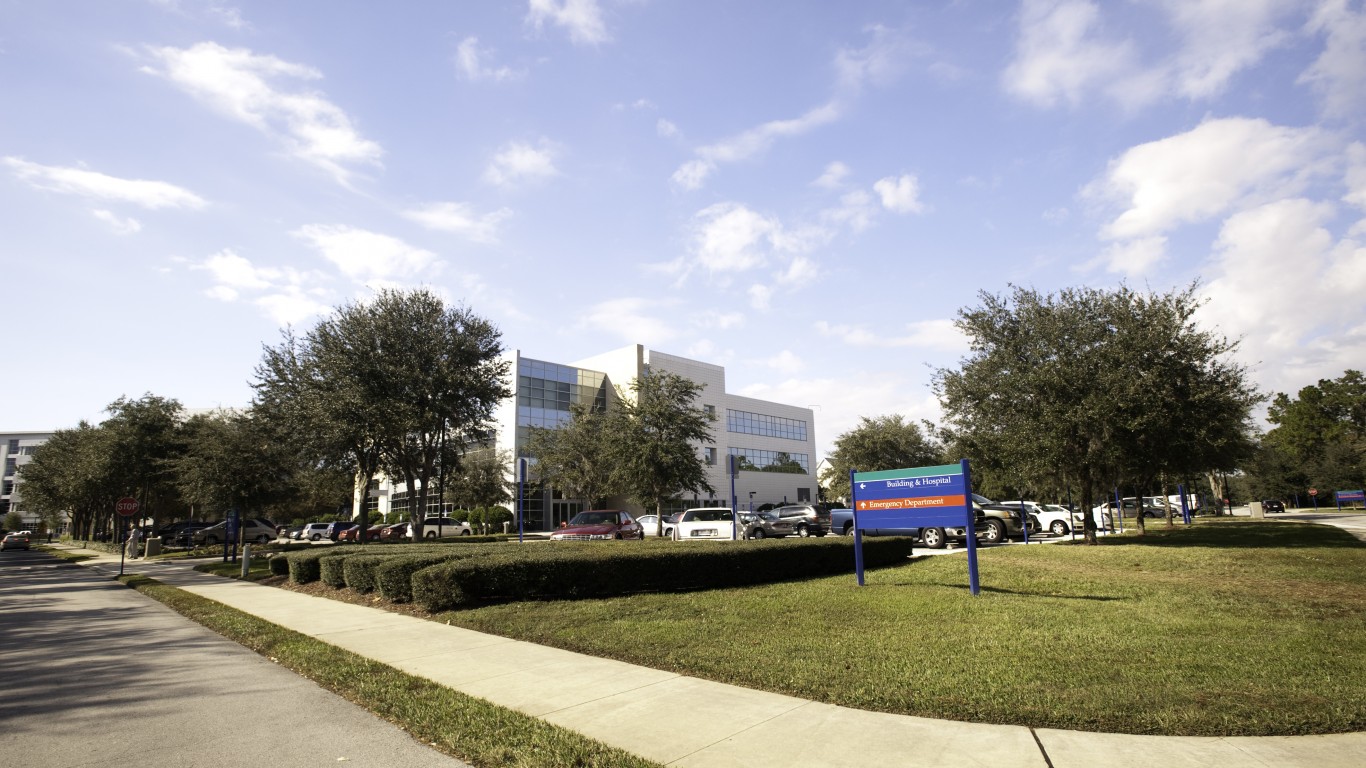
Minnesota
> Flu-like illness activity level: High
> Flu-like symptoms in week ending Dec 10: 4.6% of 36,863 patients
> Flu activity baseline during offseason for Region 5: 2.5% of patients
> 65 and over population: 16.8% (20th lowest)
> 5 and under population: 5.8% (17th highest)
[in-text-ad-2]

Mississippi
> Flu-like illness activity level: High
> Flu-like symptoms in week ending Dec 10: 6.1% of 10,769 patients
> Flu activity baseline during offseason for Region 4: 3.1% of patients
> 65 and over population: 16.8% (21st lowest)
> 5 and under population: 5.9% (14th highest)

Missouri
> Flu-like illness activity level: Very High
> Flu-like symptoms in week ending Dec 10: 6.0% of 32,804 patients
> Flu activity baseline during offseason for Region 7: 1.8% of patients
> 65 and over population: 17.6% (22nd highest)
> 5 and under population: 5.7% (20th highest)
[in-text-ad]

Montana
> Flu-like illness activity level: High
> Flu-like symptoms in week ending Dec 10: 4.5% of 7,552 patients
> Flu activity baseline during offseason for Region 8: 2.8% of patients
> 65 and over population: 19.7% (6th highest)
> 5 and under population: 5.1% (10th lowest)

Nebraska
> Flu-like illness activity level: Very High
> Flu-like symptoms in week ending Dec 10: 11.8% of 16,864 patients
> Flu activity baseline during offseason for Region 7: 1.8% of patients
> 65 and over population: 16.4% (14th lowest)
> 5 and under population: 6.3% (5th highest)

Nevada
> Flu-like illness activity level: High
> Flu-like symptoms in week ending Dec 10: 4.2% of 15,896 patients
> Flu activity baseline during offseason for Region 9: 2.4% of patients
> 65 and over population: 16.5% (16th lowest)
> 5 and under population: 5.6% (26th highest)
[in-text-ad-2]
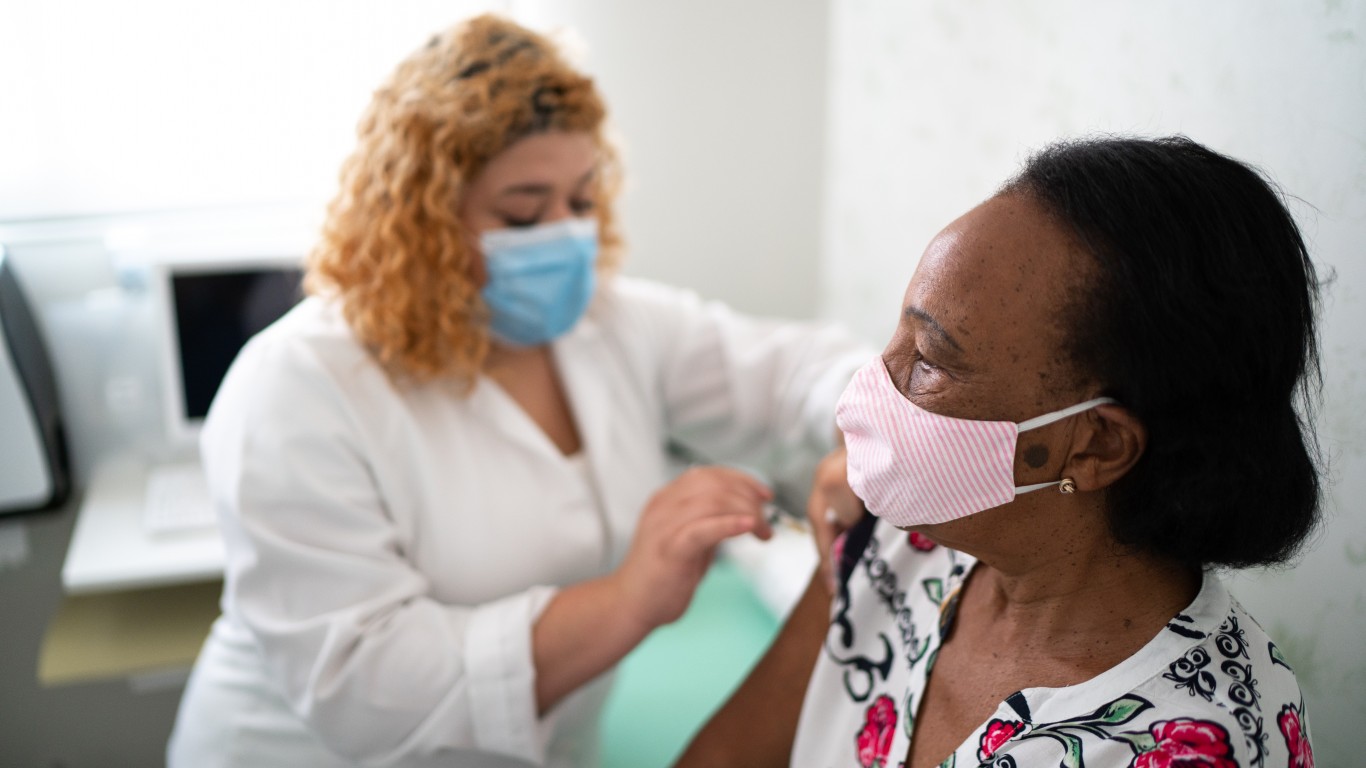
New Hampshire
> Flu-like illness activity level: Low
> Flu-like symptoms in week ending Dec 10: 2.6% of 1,040 patients
> Flu activity baseline during offseason for Region 1: 2.0% of patients
> 65 and over population: 19.3% (8th highest)
> 5 and under population: 4.5% (3rd lowest)

New Jersey
> Flu-like illness activity level: Very High
> Flu-like symptoms in week ending Dec 10: 8.6% of 32,004 patients
> Flu activity baseline during offseason for Region 2: 3.4% of patients
> 65 and over population: 16.9% (22nd lowest)
> 5 and under population: 5.6% (24th lowest)
[in-text-ad]

New Mexico
> Flu-like illness activity level: Very High
> Flu-like symptoms in week ending Dec 10: 16.6% of 25,427 patients
> Flu activity baseline during offseason for Region 6: 3.9% of patients
> 65 and over population: 18.5% (12th highest)
> 5 and under population: 5.4% (18th lowest)
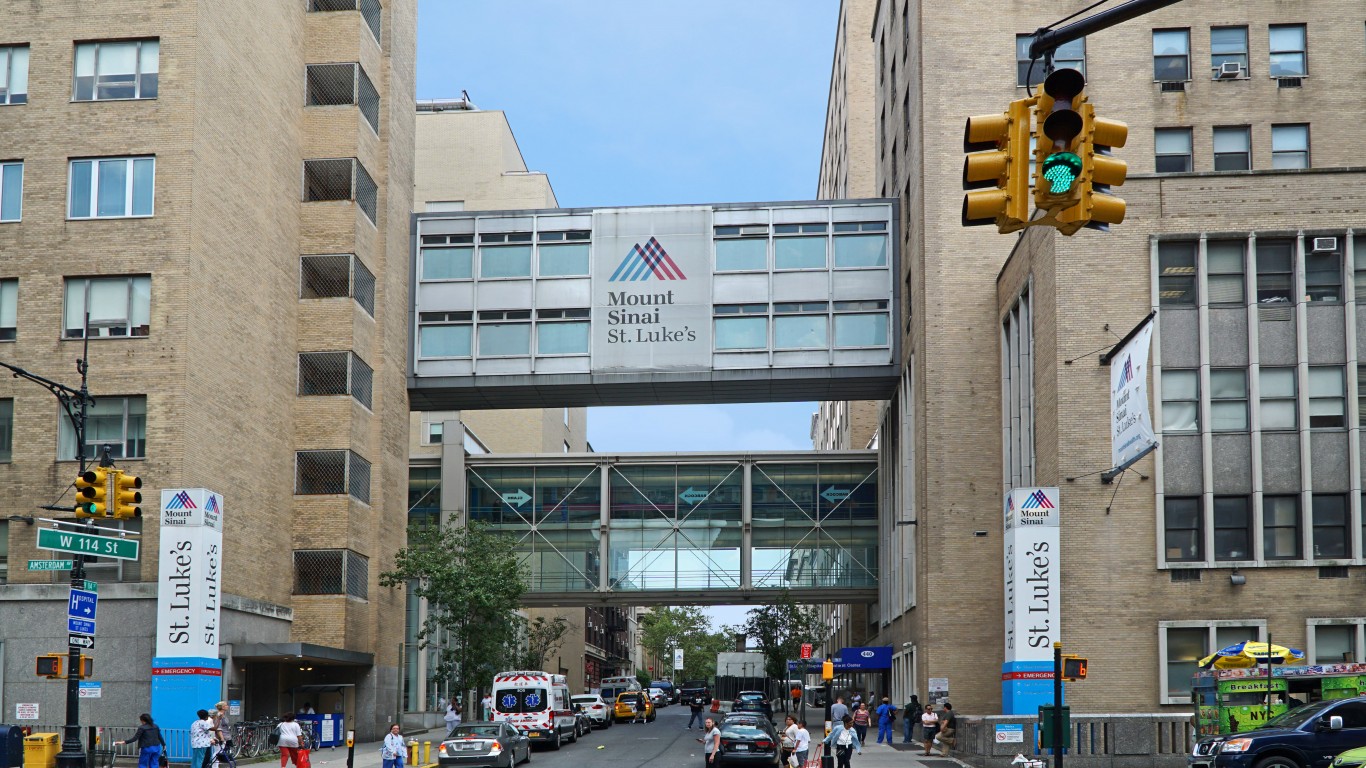
New York
> Flu-like illness activity level: Very High
> Flu-like symptoms in week ending Dec 10: 7.6% of 57,046 patients
> Flu activity baseline during offseason for Region 2: 3.4% of patients
> 65 and over population: 17.5% (24th highest)
> 5 and under population: 5.5% (19th lowest)

North Carolina
> Flu-like illness activity level: High
> Flu-like symptoms in week ending Dec 10: 4.7% of 91,376 patients
> Flu activity baseline during offseason for Region 4: 3.1% of patients
> 65 and over population: 17.0% (24th lowest)
> 5 and under population: 5.5% (20th lowest)
[in-text-ad-2]

North Dakota
> Flu-like illness activity level: Very High
> Flu-like symptoms in week ending Dec 10: 13.3% of 2,389 patients
> Flu activity baseline during offseason for Region 8: 2.8% of patients
> 65 and over population: 16.0% (8th lowest)
> 5 and under population: 6.6% (2nd highest)

Ohio
> Flu-like illness activity level: Very High
> Flu-like symptoms in week ending Dec 10: 9.7% of 43,634 patients
> Flu activity baseline during offseason for Region 5: 2.5% of patients
> 65 and over population: 17.8% (19th highest)
> 5 and under population: 5.7% (23rd highest)
[in-text-ad]
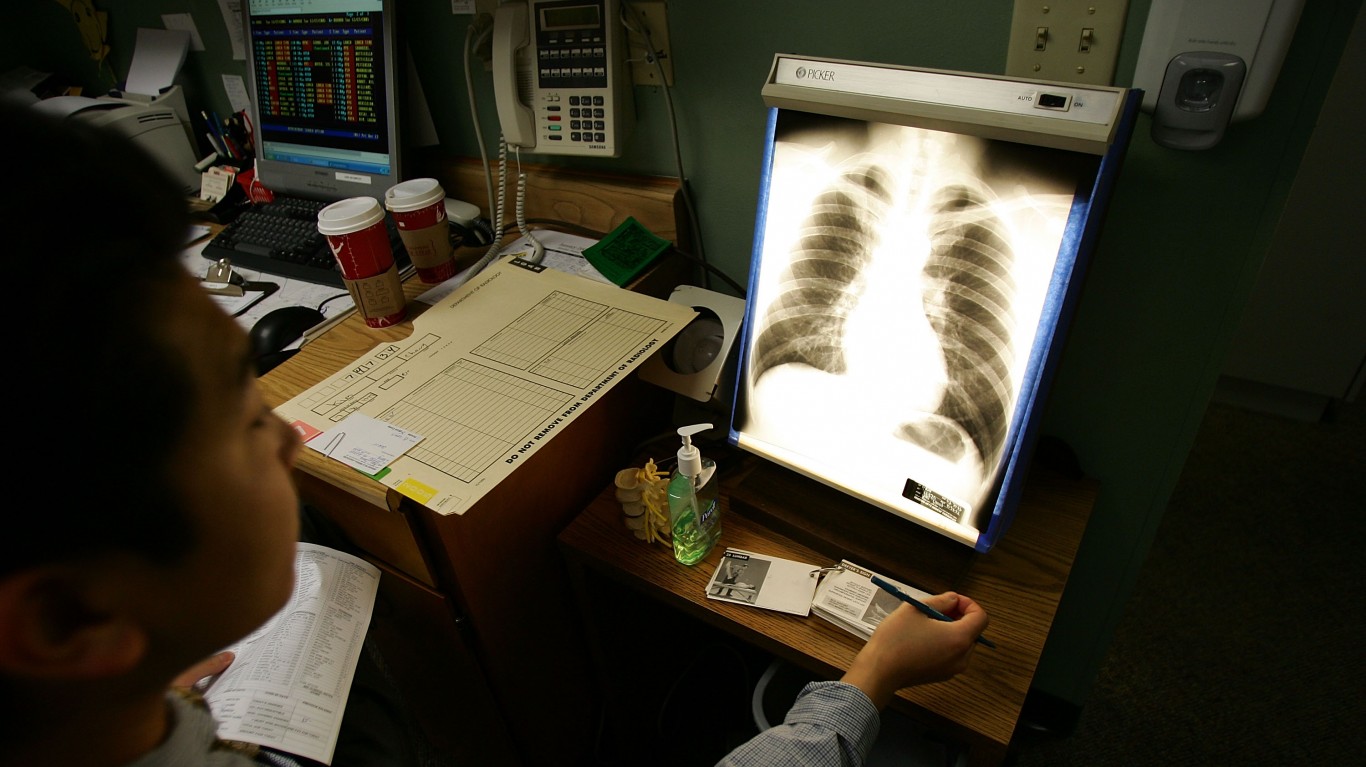
Oklahoma
> Flu-like illness activity level: Very High
> Flu-like symptoms in week ending Dec 10: 9.2% of 21,171 patients
> Flu activity baseline during offseason for Region 6: 3.9% of patients
> 65 and over population: 16.2% (10th lowest)
> 5 and under population: 6.1% (9th highest)
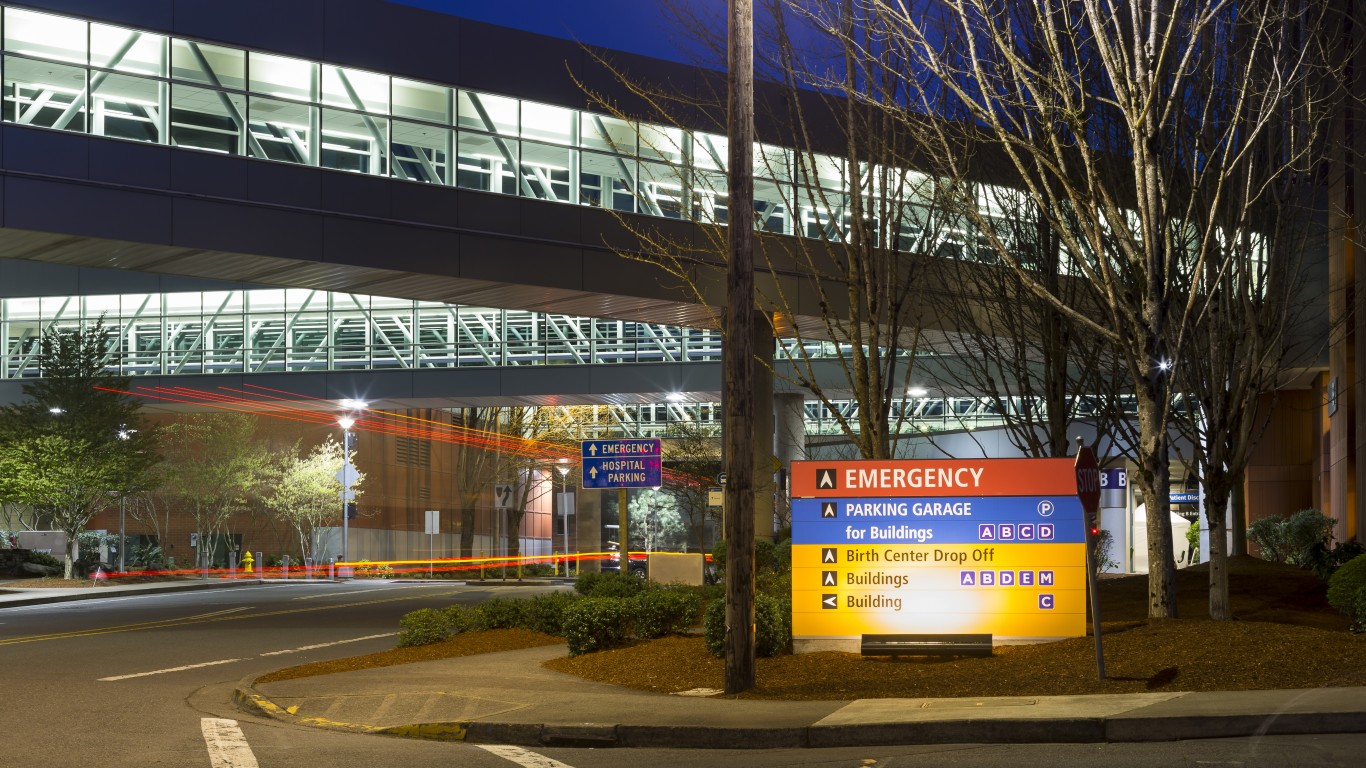
Oregon
> Flu-like illness activity level: Very High
> Flu-like symptoms in week ending Dec 10: 5.6% of 44,629 patients
> Flu activity baseline during offseason for Region 10: 1.8% of patients
> 65 and over population: 18.6% (11th highest)
> 5 and under population: 5.0% (6th lowest)

Pennsylvania
> Flu-like illness activity level: High
> Flu-like symptoms in week ending Dec 10: 4.1% of 67,519 patients
> Flu activity baseline during offseason for Region 3: 2.1% of patients
> 65 and over population: 19.0% (9th highest)
> 5 and under population: 5.2% (12th lowest)
[in-text-ad-2]
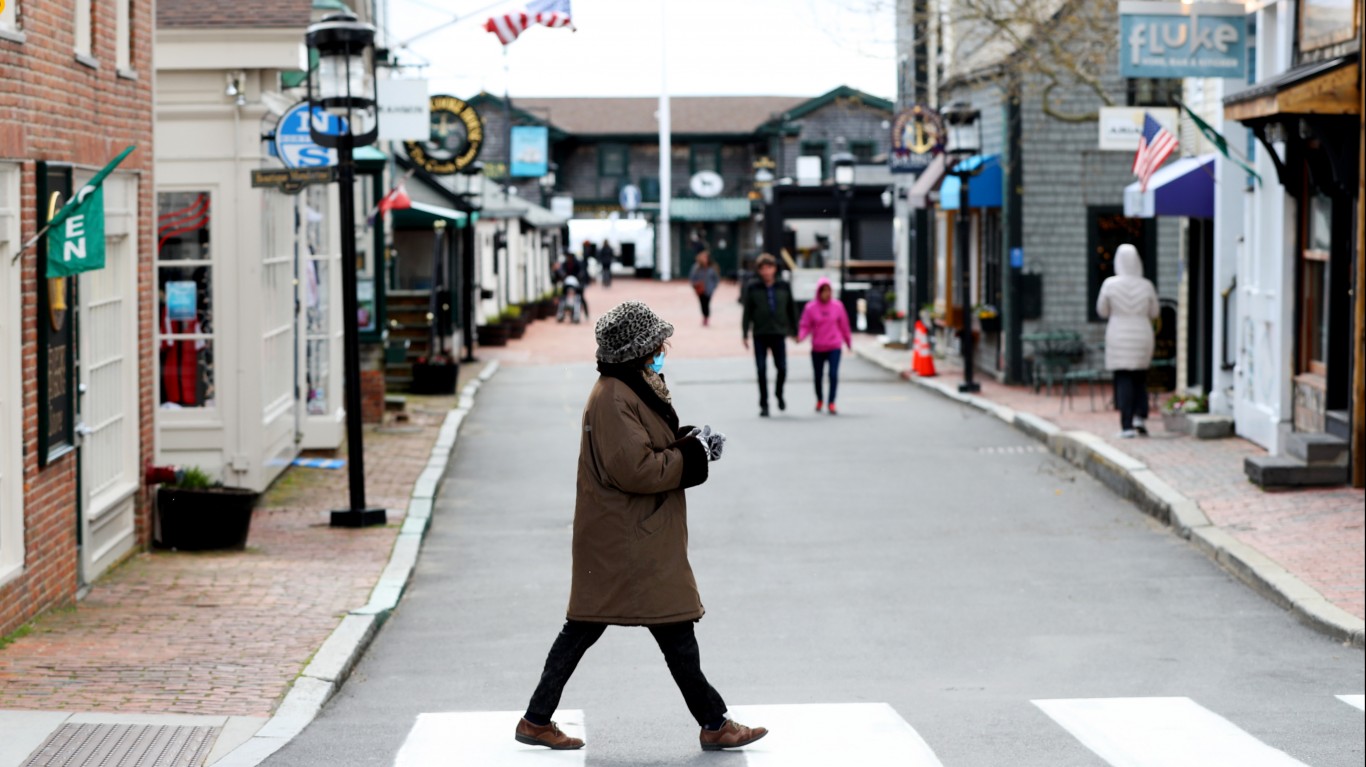
Rhode Island
> Flu-like illness activity level: Very High
> Flu-like symptoms in week ending Dec 10: 7.0% of 14,363 patients
> Flu activity baseline during offseason for Region 1: 2.0% of patients
> 65 and over population: 18.3% (14th highest)
> 5 and under population: 4.8% (4th lowest)

South Carolina
> Flu-like illness activity level: Very High
> Flu-like symptoms in week ending Dec 10: 6.4% of 32,013 patients
> Flu activity baseline during offseason for Region 4: 3.1% of patients
> 65 and over population: 18.6% (10th highest)
> 5 and under population: 5.3% (15th lowest)
[in-text-ad]
South Dakota
> Flu-like illness activity level: High
> Flu-like symptoms in week ending Dec 10: 3.4% of 9,982 patients
> Flu activity baseline during offseason for Region 8: 2.8% of patients
> 65 and over population: 17.6% (21st highest)
> 5 and under population: 6.5% (3rd highest)

Tennessee
> Flu-like illness activity level: Very High
> Flu-like symptoms in week ending Dec 10: 9.2% of 36,355 patients
> Flu activity baseline during offseason for Region 4: 3.1% of patients
> 65 and over population: 17.0% (23rd lowest)
> 5 and under population: 5.7% (21st highest)

Texas
> Flu-like illness activity level: Very High
> Flu-like symptoms in week ending Dec 10: 7.8% of 56,423 patients
> Flu activity baseline during offseason for Region 6: 3.9% of patients
> 65 and over population: 13.2% (3rd lowest)
> 5 and under population: 6.4% (4th highest)
[in-text-ad-2]
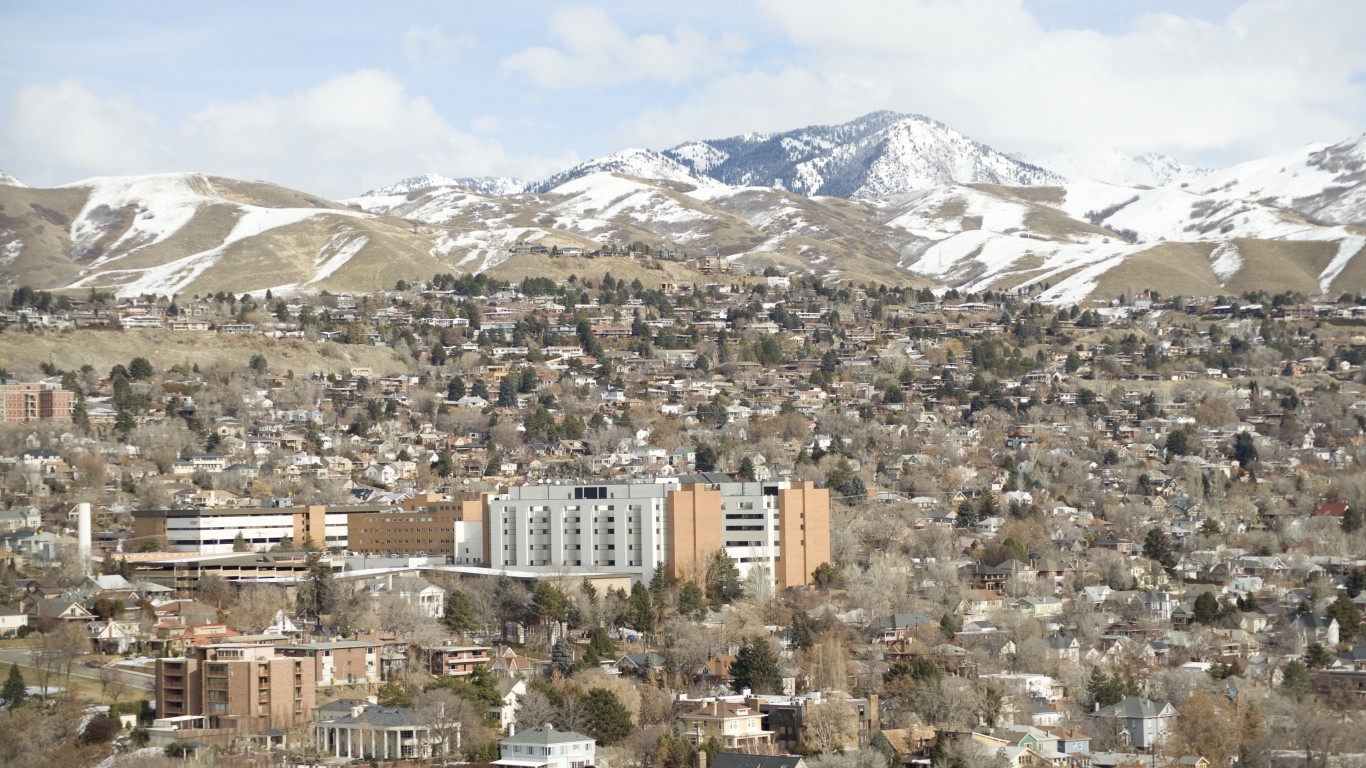
Utah
> Flu-like illness activity level: High
> Flu-like symptoms in week ending Dec 10: 5.3% of 21,885 patients
> Flu activity baseline during offseason for Region 8: 2.8% of patients
> 65 and over population: 11.6% (the lowest)
> 5 and under population: 7.0% (the highest)

Vermont
> Flu-like illness activity level: High
> Flu-like symptoms in week ending Dec 10: 4.2% of 5,507 patients
> Flu activity baseline during offseason for Region 1: 2.0% of patients
> 65 and over population: 20.6% (4th highest)
> 5 and under population: 4.2% (the lowest)
[in-text-ad]

Virginia
> Flu-like illness activity level: Very High
> Flu-like symptoms in week ending Dec 10: 7.1% of 114,751 patients
> Flu activity baseline during offseason for Region 3: 2.1% of patients
> 65 and over population: 16.3% (11th lowest)
> 5 and under population: 5.6% (23rd lowest)

Washington
> Flu-like illness activity level: Very High
> Flu-like symptoms in week ending Dec 10: 10.7% of 49,536 patients
> Flu activity baseline during offseason for Region 10: 1.8% of patients
> 65 and over population: 16.2% (9th lowest)
> 5 and under population: 5.6% (25th lowest)

West Virginia
> Flu-like illness activity level: High
> Flu-like symptoms in week ending Dec 10: 4.3% of 12,613 patients
> Flu activity baseline during offseason for Region 3: 2.1% of patients
> 65 and over population: 20.7% (3rd highest)
> 5 and under population: 5.0% (8th lowest)
[in-text-ad-2]
Wisconsin
> Flu-like illness activity level: High
> Flu-like symptoms in week ending Dec 10: 4.7% of 21,057 patients
> Flu activity baseline during offseason for Region 5: 2.5% of patients
> 65 and over population: 17.9% (18th highest)
> 5 and under population: 5.3% (16th lowest)
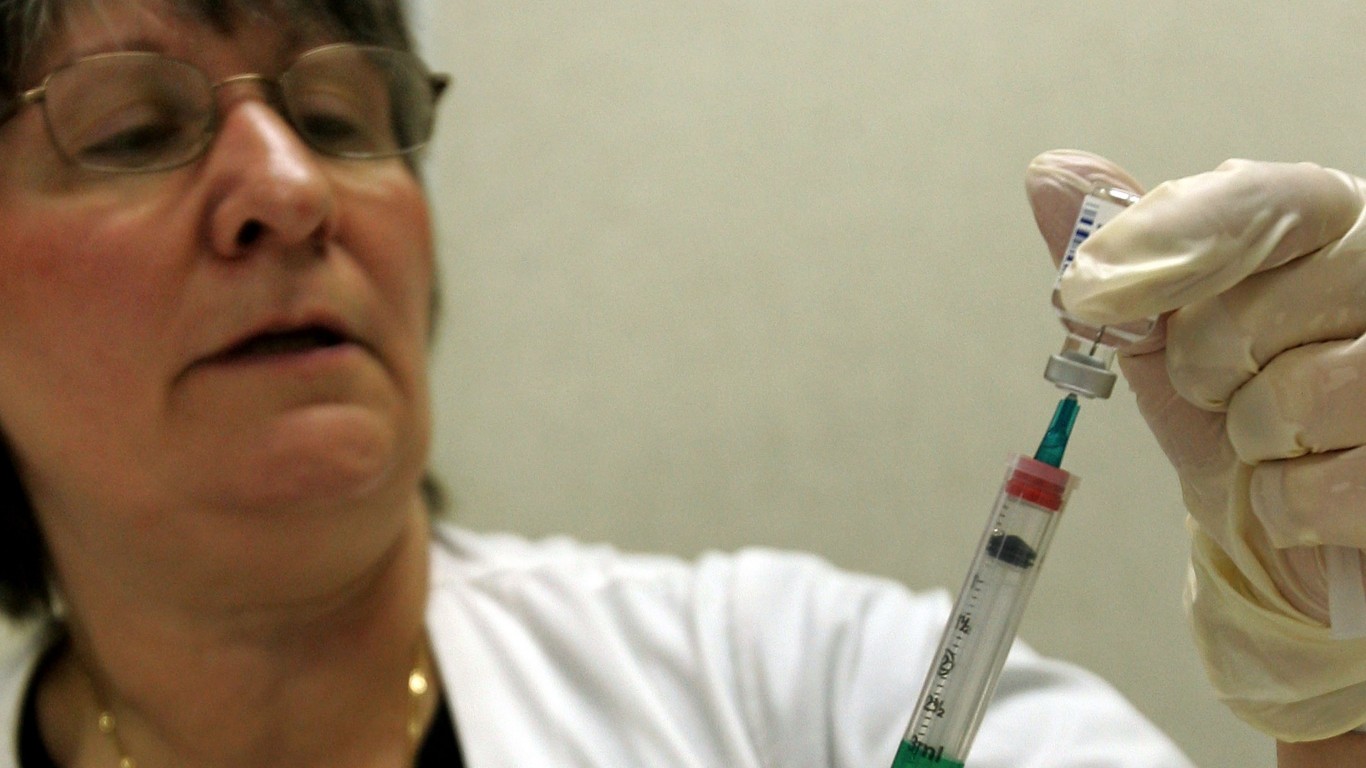
Wyoming
> Flu-like illness activity level: High
> Flu-like symptoms in week ending Dec 10: 4.0% of 3,180 patients
> Flu activity baseline during offseason for Region 8: 2.8% of patients
> 65 and over population: 17.9% (17th highest)
> 5 and under population: 5.2% (11th lowest)
Methodology
To identify the incidence of the flu in every state, 24/7 Tempo reviewed the percentage of outpatient visits with flu-like illnesses (ILI) during the week ending November 26, 2022, from the latest weekly influenza surveillance report prepared by the influenza division of the CDC.
ILI activity levels – minimal, low, moderate, and high – are based on the difference between current and off-season average proportions of outpatient visits to health providers for flu-like illnesses. These off-season baselines range from 1.1% of patients in the Seattle region (Idaho, Oregon, and Washington) to 3.1% in the New York region (New Jersey and New York). States with high activity levels are those where flu cases have exceeded the respective baseline the most.
ILI includes hospital visits for respiratory conditions such as fever plus a cough or sore throat, not laboratory-confirmed influenza. Regional baselines used by the CDC are the average percent of patient visits for ILI during non-influenza weeks for the previous three seasons plus two standard deviations.
It is important to note that outbreaks occurring in a single city can cause a state to display high activity levels, and data collected may disproportionately represent certain populations within a state and therefore may not accurately capture influenza activity for the whole state.
Populations used to compute the percentage of ILI cases for the 65 and over and 5 and under age groups are from the U.S. Census Bureau’s 2021 American Community Survey.
In 20 Years, I Haven’t Seen A Cash Back Card This Good
After two decades of reviewing financial products I haven’t seen anything like this. Credit card companies are at war, handing out free rewards and benefits to win the best customers.
A good cash back card can be worth thousands of dollars a year in free money, not to mention other perks like travel, insurance, and access to fancy lounges.
Our top pick today pays up to 5% cash back, a $200 bonus on top, and $0 annual fee. Click here to apply before they stop offering rewards this generous.
Flywheel Publishing has partnered with CardRatings for our coverage of credit card products. Flywheel Publishing and CardRatings may receive a commission from card issuers.
Thank you for reading! Have some feedback for us?
Contact the 24/7 Wall St. editorial team.
 24/7 Wall St.
24/7 Wall St. 24/7 Wall St.
24/7 Wall St.
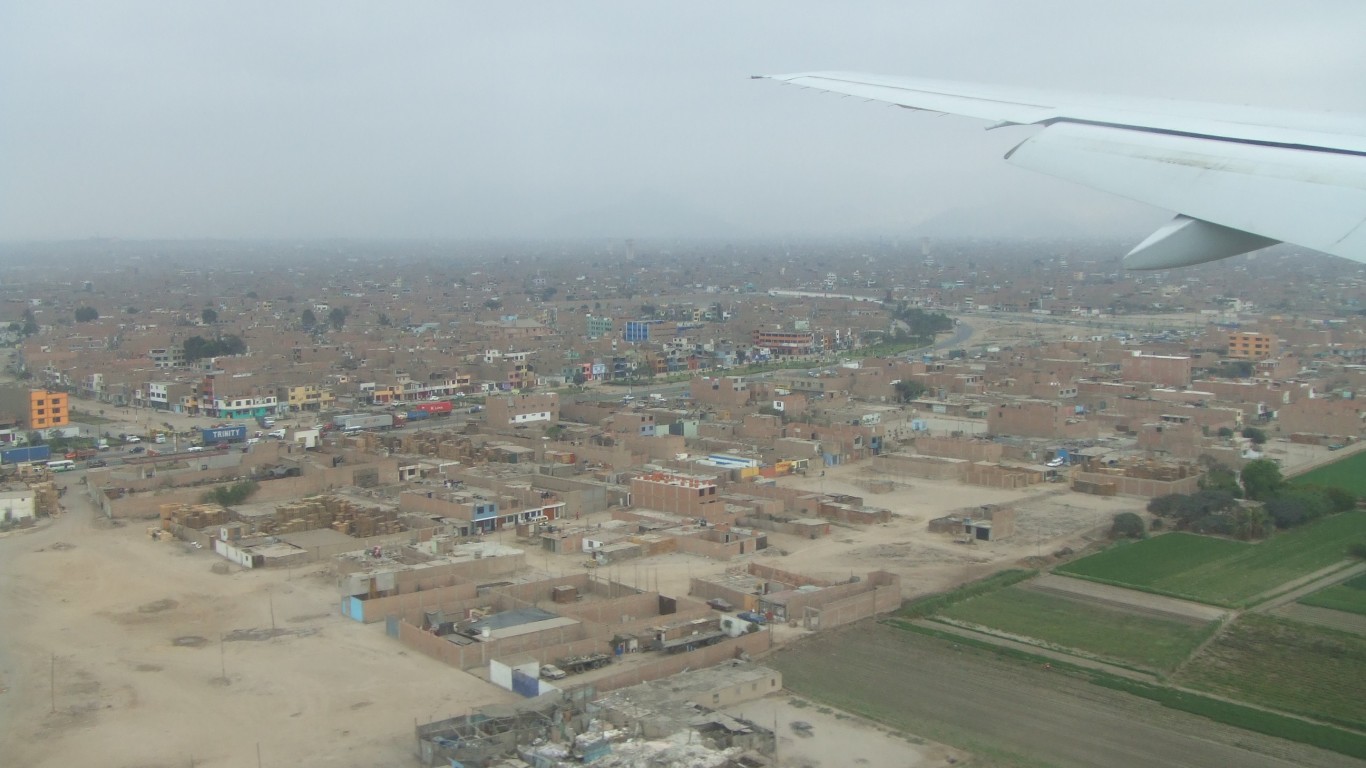 24/7 Wall St.
24/7 Wall St.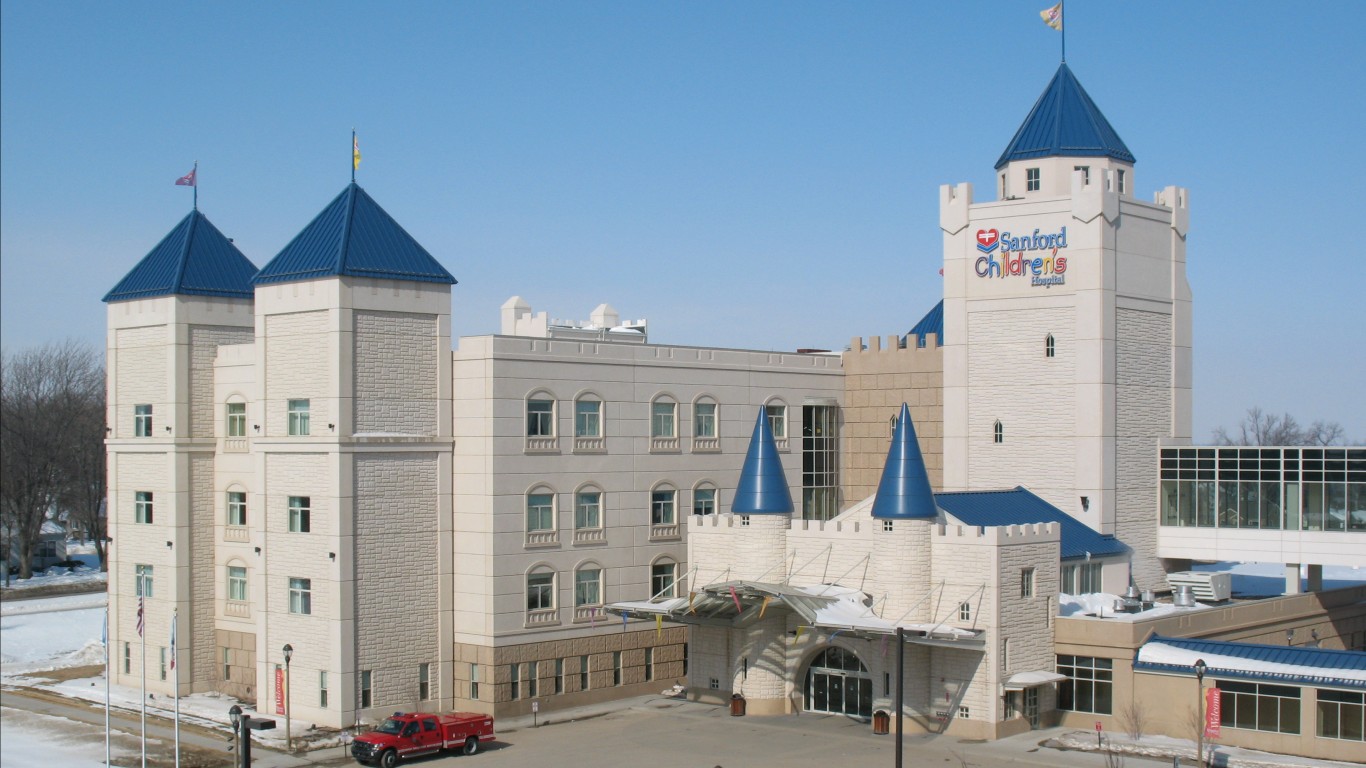
 24/7 Wall St.
24/7 Wall St.


